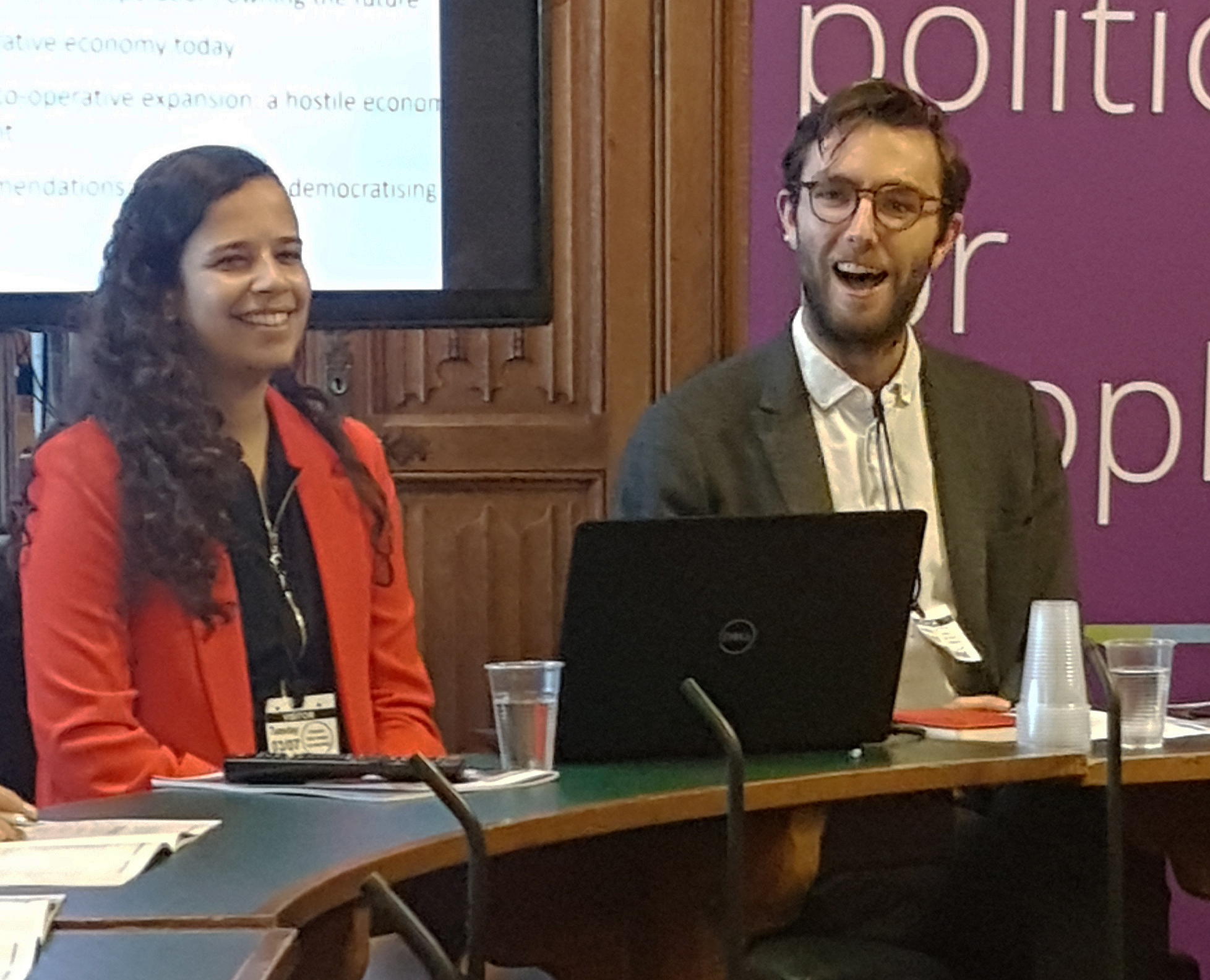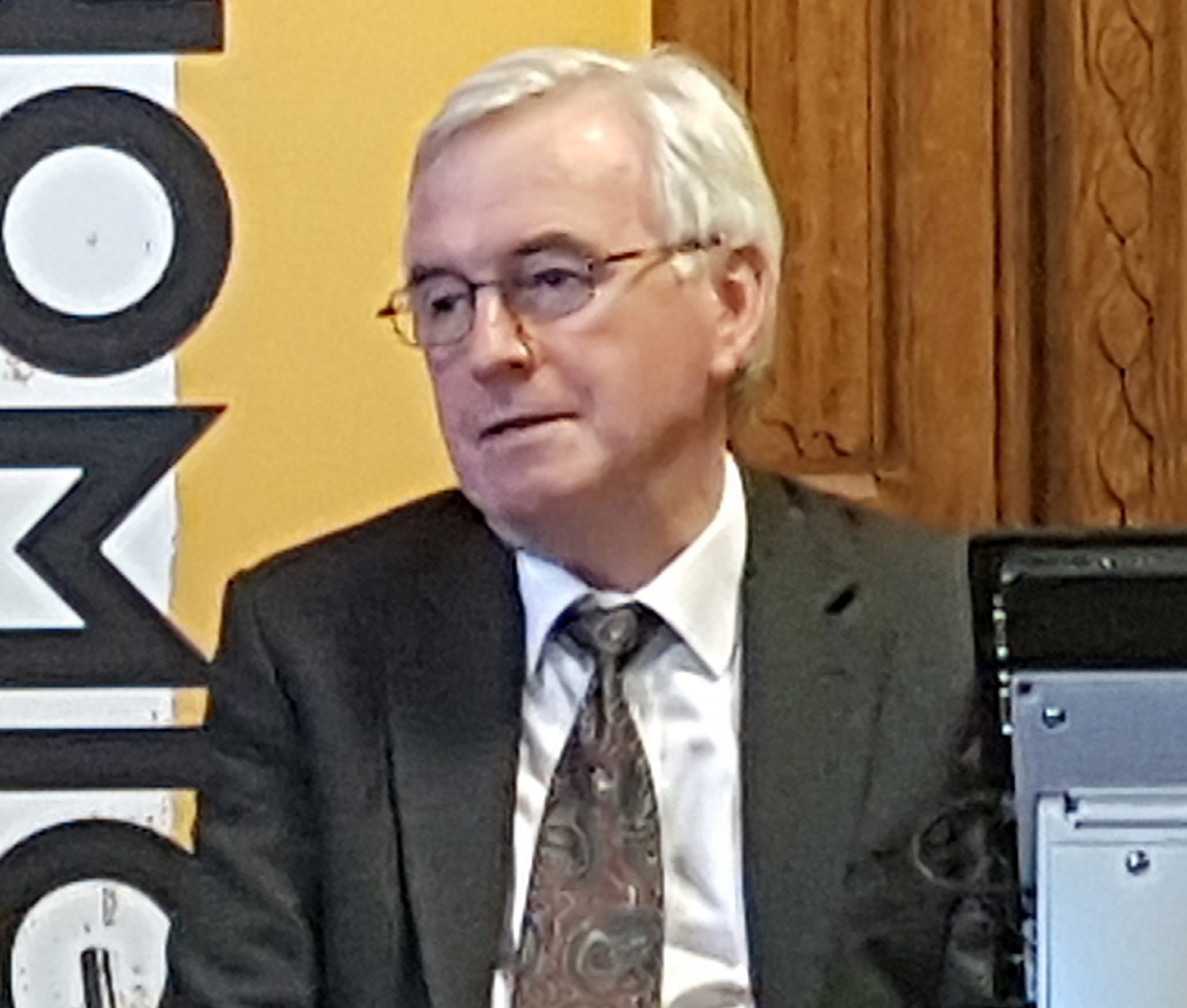Co-operative ownership models can provide an alternative to the UK’s “broken” neoliberal economy, says a new report – but a “hostile” economic and legislative environment is holding this back.
Co-operatives Unleashed – an independent report from the New Economics Foundation (NEF) – calls for a radical new framework to remedy the situation. This includes a Co-operative Economy Act, a co-op development agency for England and Northern Ireland, and a “John Lewis law” compelling larger private companies to transfer a proportion of profits into a worker- or wider stakeholder-owned trust.
The report, commissioned by the Co-operative Party to look at how a Labour government could meet its manifesto commitment to double the size of the UK’s co-op sector, warns that since the economic crash of 2008, the UK has struggled with weak growth, stagnant wages and productivity, low investment and rising inequality.
“The broken economy has lumbered on zombielike, leading to greater inequality and a growing political tension between a relatively narrow, elite group of winners and those whose living standards have stagnated,” it says.
Meanwhile, there are rising challenges brought by new technology, an ageing population, changing patterns of work and environmental problems. Co-ops offer solutions to this, the report says, because they are purpose-driven, democratic, accountable and have proven more resilient and productive than conventional businesses.

Speaking at the launch of the report at Parliament last night, Co-op Party general secretary Claire McCarthy said she hoped it would be a “real resource” for the movement and would “fire the starting gun” for a transformation of the economy.
In the report, authors Mathew Lawrence, Andrew Pendleton and Sara Mahmoud call not just for a doubling of co-op turnover, but for a “profound transformation in business ownership”.
They warn that co-ops are being held back by “an absence of legislation and policy, institutional support, advice, incentive and promotion.
“With an economy that does nothing to help co-ops thrive and everything to create a hostile environment for models of co-operation, it is unsurprising that the UK has one of the smallest sectors of any country,” they add.
Related: Government not going far enough on social value spending, says Co-op Party
In remedy, they make a series of recommendations in five interlocking steps:
- A new legal framework for co‑operatives
- Finance that serves the co‑operative agenda
- Deepening co‑operative capabilities through a Co‑operative Development Agency
- Transforming business ownership
- Accelerating community-wealth building initiatives.
“Growth in co-operation and the democratisation of business will likely stall unless we transform the hostile economic environment into one that is conducive,” says the report. “To this end, we also recommend a ‘heartbeat’ policy we call an Inclusive Ownership Fund.”
Under this proposal, “all shareholder- or larger privately owned businesses would transfer a small amount of profit each year in the form of equity into a worker or wider stakeholder-owned trust. Once there, these shares would not be available for further sale.
“Partnership stakes carry with them democratic control rights over the management and direction of the business. In many respects, our proposal for an Inclusive Ownership Fund can be thought of as a John Lewis law.”

Other recommendations include a Co-operative Economy Act which would include a right-to-own measure, supporting employee buy-outs in business transitions. At the launch, Mathew Lawrence said that, with a generation of baby-boomer business owners approaching retirement age, a “tsunami of business successions” was on the way, offering a vital way to grow the movement.
The report also wants a national investment bank that includes a mandate for patient risk capital specific to the co-op, mutual and social enterprise sector; legislation similar to that existing in Europe for the creation of mutual guarantee societies; co-operative enterprise grants for the unemployed; and a stronger framework for the Preston model of local procurement.
Mr Lawrence said the co-op model was powerful because it addresses one of the core problems of the UK economy, the imbalance of ownership.
“It’s really no coincidence that in the last 70-80 years there were two deep transformations of economy, under Attlee and under Thatcher,” he said. Both were to do with ownership – with nationalisation and privatisation – and now it was time for a third “much-needed transformation” to democratise ownership.
Labour’s shadow chancellor John McDonnell echoed this view, adding that the pledge to double the co-op economy was “pretty timid as a commitment … I think we can do much better than that”.

He said the report would help a Labour government meet its commitment to democratising the economy. “This is a really exciting period where we’re developing the ideas and commissioning expert resources,” he said, adding that he wanted to put the ideas in the NEF report into Labour’s first Queen’s speech.
“We’re taking the promises from the last manifesto and new ideas. Just in case this government does collapse, we’re trying to transfer policies into an implementation manual,” he said.
Mr McDonnell believes the ideas in the report would help Labour take over the Conservatives’ mantle as the party of business, at a time when the government was falling out with business leaders over Brexit.
He said he wanted to democratise the decision-making process, with opportunities for “a renaissance in local government” and scope to use ideas such as the commons and trust model to change land ownership.
But – while some in the Co-op Party have argued for mutual models for transport and utilities – he said: “We will use the traditional mechanism that Attlee developed” of full nationalisation for rail, water, the Royal Mail and energy.”